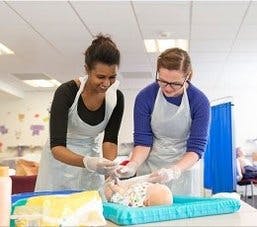10 top tips for student nurses
Take a look at Senior Lecturer Nicola Clarke’s 10 top tips student nurses need to know to maximise their potential.
1. Be responsible
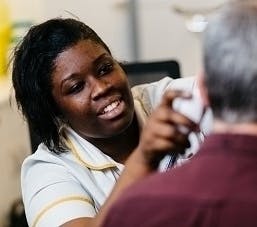
"Ask lots of questions."
Within the university setting you are accountable for your own learning. Recognise when you need help, come and get the support you need. Ask the questions you need to ask. Find out the information you need to know.
2. Know your personal tutor
"Your personal tutor is a great source of support."
Your personal tutor has a varied role from official academic business to pastoral support and will be there for you for the duration of your programme. Get to know them beyond the official times you must meet with them. Pop in and see them even if you are doing really well. Your personal tutor is a great source of support. If they can’t answer your questions they will usually “know a person who can”.
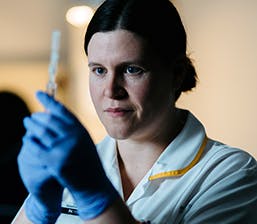
3. Engage in time management
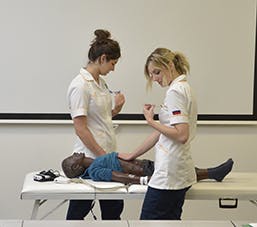
"Plan. Plan. Plan."
Nursing courses are busy and many of you have responsibilities outside of getting yourself through your degree. Plan. Plan. Plan. Your programme will be a smoother ride if you manage your time effectively. Use the days you are not on placement or in class to study, stay on top of those assignments. Book your tutorial support well in advance of any assignment deadline. University lecturers will tend not to offer appointments within one week of assignment submission dates. Remember, your module leaders, personal tutors, and academic support staff, have varied roles and can get booked up very quickly. To save disappointment, book early.
4. Access academic support
"You can gain support for all matters of an academic nature."
The faculty of HELS has a wealth of support for students offered by the best staff in the business. The Academic Development Department (ADD) is a unique department specifically for the HELS faculty. Here you can gain support for all matters of an academic nature, including numeracy, whether you are struggling or just want to know how to gain those high marks. The ADD is situated on level 2 Seacole building, so don’t be a stranger. We also have one of the biggest and best nursing libraries in the country. The library staff here offer tutorial support for developing literature searching skills.
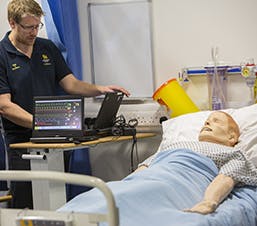
5. Engage with Reflective Practice
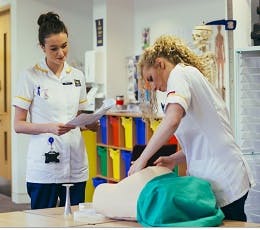
"Be the best you can be."
To be the best practitioner you can be, is also to be the best person you can be. This comes through gaining greater levels of self-awareness so we can become emotionally intelligent and safe practitioners. Reflection and reflective practice are key to this and you will learn about these concepts on your programmes. Embrace them and engage with them. Be the best you can be.
6. View your programme as the start of lifelong learning
"Don't learn information just to pass tests."
Don’t wait until a week before an exam to start revising. Remember that what you are learning here on a daily basis and in the clinical area is the knowledge you will use to underpin the rest of your career. Don’t learn information to pass tests. The moment you step out of class immerse yourself in your subject matter. Live and breathe the career you have chosen to go into. Don’t just know nursing, make it part of who you are.
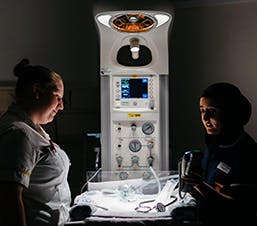
7. Attend and engage in class
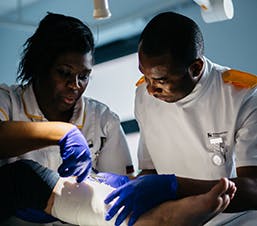
"Get involved in the lecture."
Too many students miss class and then become stressed that they have missed content. Attend all your lectures, this way you will always be ‘in the know’, rather than playing catch up. This will empower you to do well and get the classification of degree you want. It will also help you to be safe in your practice as you should have the knowledge to support what you are doing. Get involved in the lecture. Most lecturers prefer student involvement. This can promote rich discussion where a deeper level of learning can take place. Sitting at the back of class can make this harder to achieve.
8. Read. Read. Read
"Immerse yourself in the material."
You are studying for a degree. You cannot read enough. In the world of evidence-based practice, where everything we do in the caring environment is underpinned by informed knowledge, you cannot read enough. Immerse yourself in the material. Read your subject matter for fun, it will sink in better.
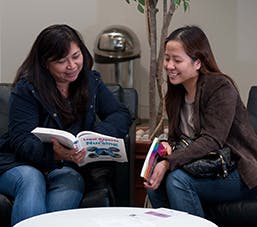
9. Ask questions
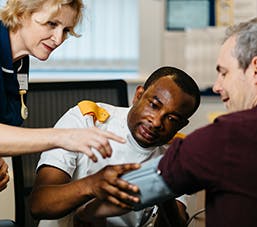
"Never be afraid to ask."
There is never a ‘stupid question’. Never be afraid to ask, even if you have to ask more than once. The staff here want to help, and are always more than willing to help students who help themselves. Remember the question you ask is probably the question a number of other students want the answer to as well.
10. Get to know your fellow students
"Fellow students can be a wonderful resource of support."
Getting to know your fellow students can provide another branch of support during your programme. Students can be a wonderful resource of support, knowledge and fun for each other. Remember you are here to work but being at university should also be fun!
